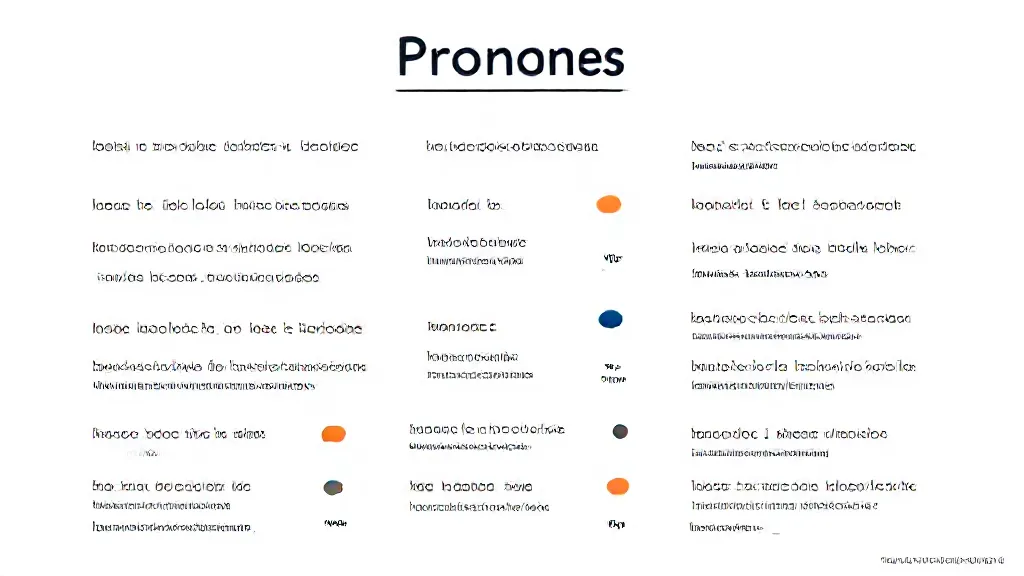Pronouns are essential components of language that replace nouns and help avoid repetition. However, many writers find themselves confused when it comes to their correct usage. This confusion can stem from various factors, including grammatical rules, the complexity of gender identity, and the nuances of context.
Understanding these elements is crucial for effective communication and writing clarity.
The Role of Pronouns in Language
Pronouns serve to streamline communication by substituting for nouns in sentences. For example, instead of saying "Sarah went to Sarah's car," we can say "She went to her car.
" This simplification is key in both spoken and written language. However, the rules governing pronoun usage can be intricate. Writers must navigate subject pronouns, object pronouns, possessive pronouns, and reflexive pronouns, each serving distinct functions.
Misunderstandings can arise when writers fail to recognize these differences, leading to awkward or incorrect sentences.
Gender and Pronoun Usage
The evolution of language has brought significant changes to pronoun usage, particularly concerning gender. Traditionally, pronouns like "he" and "she" were used to denote male and female subjects, respectively.
However, the growing recognition of non-binary and gender-fluid identities has introduced the use of singular "they" and other gender-neutral pronouns. This shift can create confusion for writers who are accustomed to binary pronoun systems. Writers must remain adaptable and informed about these changes to ensure their writing is inclusive and respectful.
Contextual Nuances of Pronouns
Pronouns can take on different meanings depending on the context in which they are used. For instance, the pronoun "you" can refer to a single person or a group, depending on the situation. This variability can lead to ambiguity, especially in complex sentences or narratives.
Writers must pay close attention to the context to ensure that their pronoun choices accurately convey the intended meaning. Failure to do so can result in misunderstandings or misinterpretations by readers.
Common Mistakes in Pronoun Usage
Many writers make common mistakes when using pronouns, such as mismatching pronouns with their antecedents.
For example, saying "Everyone should bring their book" may confuse some readers, as "everyone" is a singular noun. The grammatically correct form would be "Everyone should bring his or her book," though this can sound awkward. Writers must be aware of these pitfalls and strive for clarity by using pronouns that match their antecedents in number and gender.
The Importance of Consistency
Consistency is key in writing, particularly regarding pronouns. A text that shifts between "he," "she," and "they" without clear reasoning can confuse readers. Writers should establish a clear pronoun reference early in their work and maintain that throughout to avoid disorientation.
This consistency helps readers follow the narrative or argument and enhances overall comprehension.
Strategies for Overcoming Pronoun Confusion
To overcome pronoun confusion, writers can employ several strategies. First, they should familiarize themselves with the various types of pronouns and their functions.
Additionally, using tools like grammar checkers can help identify potential errors. Writers may also benefit from reading their work aloud, as this can highlight awkward phrasing or unclear pronoun references. Finally, seeking feedback from peers can provide valuable insights into how well pronouns are used in their writing.
Conclusion: Embracing Pronoun Complexity
In conclusion, while pronouns can indeed be a source of confusion for writers, understanding their roles and the nuances of usage can significantly enhance writing clarity. As language continues to evolve, so too must writers adapt to these changes, embracing the complexity of pronouns rather than shying away from them. By doing so, they can communicate more effectively and inclusively, ultimately enriching their writing and connecting with a broader audience.
Further Reading and Resources
For those interested in deepening their understanding of pronoun usage, numerous resources are available. Books on grammar, style guides, and online courses can provide valuable insights. Websites like Purdue OWL offer extensive information on pronoun rules and usage, while forums and writing communities can serve as platforms for discussion and feedback.
Engaging with these resources can empower writers to navigate the intricacies of pronouns confidently and competently.
